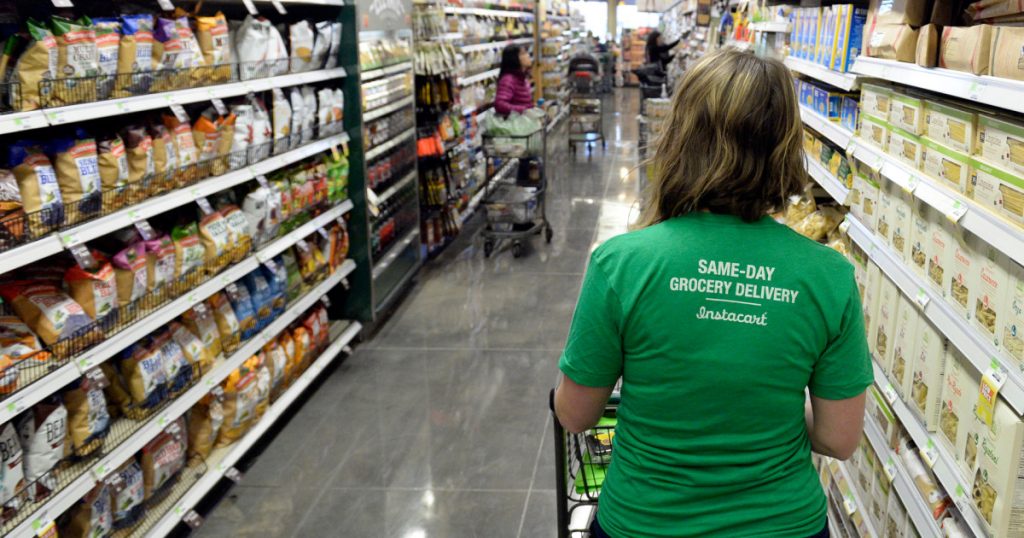“Shoppers Have Had Enough”: Instacart Workers Plan a Strike
For indispensable reporting on the coronavirus crisis and more, subscribe to Mother Jones’ newsletters.On Monday, workers for the grocery delivery service Instacart are planning to strike as part of an effort for better workplace protections amid the coronavirus pandemic. The nationwide walkout is one of a handful of similar actions across the country that call attention to the few protections that exist for frontline workers putting themselves at risk. “Shoppers have had enough,” says the Gig Workers Collective in a statement announcing the strike.
“Instacart has still not provided essential protections to Shoppers on the front lines that could prevent them from becoming carriers, falling ill themselves, or worse,” the announcement says.
Instacart has said it’s hiring 300,000 new shoppers to meet the surge in demand as many Americans shelter in their homes. It has also introduced some safety measures, including paid sick leave for those diagnosed with COVID-19. But workers want more protections: hazard pay, protective equipment, and expanded sick leave.
The news was first reported by Vice. The strike is being led by Vanessa Bain, a worker in California who has been at the heart of efforts to reform Instacart—and the gig economy broadly.
SCOOP: Instacart’s workers are planning a nationwide strike on Monday to protest the company’s response to coronavirus.
Wildcat strikes have been sweeping the country in recent days, but this marks the first major walkout in the gig economy.https://t.co/9xKetJN4F0
— Lauren Kaori Gurley (@LaurenKGurley) March 27, 2020
An Instacart strike isn’t anything new. Back in October, I wrote about a strike Bain was organizing to fight against cut wages, unclear algorithmic pay models, and potential retaliation for their advocacy.
The coronavirus is only making those problems more glaring. Organizers like Bain have tried to use the increased visibility of workers to push change on long held concerns. But gig companies, as I reported earlier today, are doubling-down on their current employment models as their services become essential.





